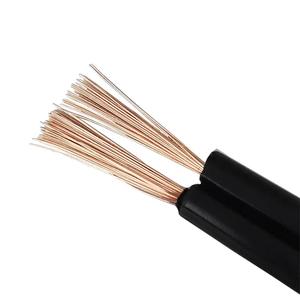Understanding 2 AWG Wire: A Comprehensive Overview
2 AWG wire is a significant component in electrical systems, known for its capacity to handle substantial electrical loads. This wire size finds its application across various industries, serving as a reliable solution for both residential and commercial wiring needs. Whether you're engaged in heavy machinery or high-performance electrical projects, understanding the specifications and functionalities of 2 AWG wire is crucial for ensuring safety and efficiency.
Types of 2 AWG Wire
When considering 2 AWG wire, it's essential to note the different types available, each tailored for specific applications:
- Stranded Wire: Composed of multiple small strands, stranded 2 AWG wire offers greater flexibility, making it ideal for use in areas where bending and mobility are crucial.
- Solid Wire: Made of a single solid conductor, solid 2 AWG wire provides durability and is typically used in fixed installations where less flexibility is required.
- Multi-Conductor Wire: This type features several insulated conductors within a single outer jacket, allowing for multiple circuits within a single wire assembly, ideal for complex electrical systems.
- Low Voltage Wire: Specifically designed for low voltage applications, these wires ensure safety without compromising performance.
Function and Feature of 2 AWG Wire
The functionality of 2 AWG wire is highlighted by its diverse features, making it a staple in various electrical applications:
- High Current Capacity: 2 AWG wire can handle large amounts of electrical current, making it suitable for battery connections, electrical panels, and power distribution systems.
- Heat Resistance: With insulation materials designed to withstand high temperatures, 2 AWG wire can operate safely in demanding environments.
- Corrosion Resistance: Many types of 2 AWG wire come with coatings that protect against oxidation, extending the life of the wire in harsh environments.
- Flexible Options: Available in both stranded and solid formats, users can choose between flexibility and strength based on their specific application needs.
Applications of 2 AWG Wire
The versatility of 2 AWG wire allows it to be employed in various sectors, each maximizing the wire’s strengths:
- Residential Wiring: Commonly used in main electrical panels and for large appliances like electric water heaters and HVAC systems.
- Automotive Industry: Ideal for battery cables and high-current circuits, ensuring reliable performance in vehicles.
- Industrial Settings: In manufacturing and machinery, 2 AWG wire powers heavy equipment, ensuring seamless operation of production lines.
- Renewable Energy Systems: Trusted for solar panel installations and wind turbine setups, where robust electrical connections are paramount.
Advantages of Using 2 AWG Wire
Choosing 2 AWG wire comes with numerous advantages, enhancing its appeal in electrical installations:
- Enhanced Durability: Made from high-quality materials, 2 AWG wire exhibits remarkable toughness, ensuring longevity even in rugged environments.
- Improved Efficiency: With a higher current-carrying capacity, 2 AWG wire minimizes voltage drops, leading to more efficient energy transfer.
- Cost-Effective: Despite its higher upfront cost, the long lifespan and lower maintenance needs of 2 AWG wire contribute to long-term savings.
- Safety Compliance: 2 AWG wire typically meets stringent safety standards, providing peace of mind during electrical installations.






































